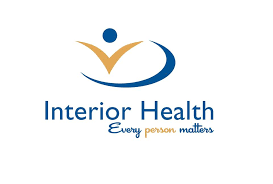Establishing Your New Routine for the Fall
September & October is usually a time when everyone gets back into their routines, whether work, school or home. This is a great time to see if you have established a good foundation for the winter months ahead.
Let’s start at the base of health- sleep. It’s extremely important that everyone has at least 7-8 hours per night of non-interrupted sleep. This is the time children should be back in the habit of getting to bed early enough to get that 8-10 hours. If your children or yourself have insomnia or wake at night, you need to seek ways to remedy this. The adrenal glands are responsible for handling stress and needs to recover at night, so, they cannot repair themselves when sleep is broken. This may result in irritability, tiredness, poor coping ability, lack of drive & motivation, mood swings, hyper-activity or the inability to concentrate and focus.
One way to minimize insomnia is to reduce stimulants such as coffee, black/green/white tea, herba mate, honeybush, rooibos tea or Pop to 2-3c/wk. Instead, consider drinking a calming tea. Consider practising meditation or yoga to relax the mind. You may also seek a practitioner to see what strength of herbs and/or supplements would be best to support your adrenals and re-build your nervous system to help re-establish your sleep patterns.
Secondly is water. Most of us have a shower or bath every day to rinse off the outside of our bodies, so we should be cleaning the inside of our bodies as regularly by drinking ½ the number of pounds you weighin ounces of water. So, if you weigh 140 pounds, you should be drinking 70 oz/day or about 7 glasses/day. One of the easiest ways to make sure you get enough water is to carry a water bottle with you or have one you can fill at your desk. I find if you have to get up to fill your cup, it doesn’t happen, so, as little as 1-3 cups per day is often the amount people drink. Water helps flush by-products, toxins, hormones and waste materials from the system regularly, helps prevent constipation, kidney stones and bladder infections and maintains all the fluid levels in your body. For example, did you know water helps keep the vertebral discs hydrated or “puffed up” to minimize back pain from rubbing vertebrae?
A great water carrier is a “Nalgene” water bottle. It is a stable plastic that doesn’t leach into the water, like most do, and can be bought at any outdoor store.
Remember, the water should be alkaline, so, if you have chlorinated water you should be filtering it through a solid carbon block filter system, like Rainfresh or Santevia to remove the chlorine, other chemicals, as well as bacteria/viruses or fungus. Non-solid filters, like Brita only partially remove the chlorine, don’t remove any bugs and the water is still acidic. For folks on the move, I have them use a Santevia water stick. This can be put in any water bottle and alkalinizes the water, so, you can fill your water bottle with tap water when you are travelling and it will keep it alkaline. It can be used repeatedly up to 1000x or for 1 year.
Always drink water and other fluids away from meals, otherwise, the salivary enzymes are diluted, which reduces the proper breakdown of food in the mouth.
So, now that we have laid the foundation, we will now discuss basic nutrient requirements and foods.
When I ask what people eat during the day, one of the common imbalances is a lack of consistent protein at each meal. Three meals are extremely important, even if you are trying to lose weight, because it is the first meal that “starts the engines” in the body to burn the fuel. Therefore, by having breakfast, rate and start using up those calories. If you have a hard time with breakfast, a good start is a fruit smoothie made with unsweetened soy, almond, hemp, goat, quinoa or coconut milk. You could also add almond butter, sunflower seed butter, cashew/almond seed butter or organic soy/rice/egg/bean/brown rice/hemp or pumkpkin seed protein powder for protein. This makes a light breakfast that you can take with you if necessary. Another possibility is a handful of rawnuts and seeds (excluding peanuts), such as almonds, sunflower and pumpkin seeds.
For those that like to have a more substantial breakfast, eggswith leftover veggies, cereal with some nuts and seeds and yogurt or almond,soy, goat, orcoconut milk, pancakesor waffles with ground nuts/seeds, burritos withbeans and veggies all make great breakfasts. Note all these have fairlyequivalent amounts of carbohydrate (being veggies, fruit or whole grains) and protein (eggs/ beans/nuts/seeds/yogurt/seed/nut milks. Grabbing a bagel, muffin, or a piece of toast for breakfast is primarily carbohydrates, which break down quickly and therefore raise your blood sugar too high. This results in getting that 11 o’clock fade, due to the blood sugar drop. These blood sugar fluctuations put too much load on the pancreas, because it then responds by having to pump out more insulin and resultant cortisol, which, if that happens repeatedly, the body will become insulin resistant and possibly lead to adrenal imbalance. This tends to lead to weight gain, poor focus, concentration, irritability, mood swings, fatigue and eventually, if not brought back to a balance, diabetes.
Note, I have suggested mostly vegetable proteins. There are many reasons the body needs at least 3-5 tbsp. of raw nuts and seeds per day. They lubricate your joints, decrease inflammation, keep the veins and arteries from being clogged and are an excellent source of Calcium, Magnesium, Manganese, Boron, Selenium and many other trace minerals. Unfortunately, peanuts are a legume and do not have any of these qualities and has been shown to contribute to atherosclerosis or clogging of the arteries and veins. Many of you will say, “but what about all that fat?” As stated before 3-5 tbsp. are used up, therefore not stored as weight gain.
Beans, legumes and soy have been shown to decrease cancer risk, help to balance our hormones and help prevent constipation and eggs have biotin that helps to stabilize blood sugar. The old studies that found eggs to be detrimental were eggs that had been fried in bacon fat. The recent studies have shown, although they have cholesterol, they have enzymes within them that help break that down and do not lead to increased cholesterol levels if eating 6-8/week.
Next week we’ll talk about lunches.
If you would like specific directions on adrenal re-building, nervous system re-balancing, an eating program for your needs or test for vitamin & mineral deficiencies, please call: Dr. Brenda Gill at 362-5035 for an appointment


























